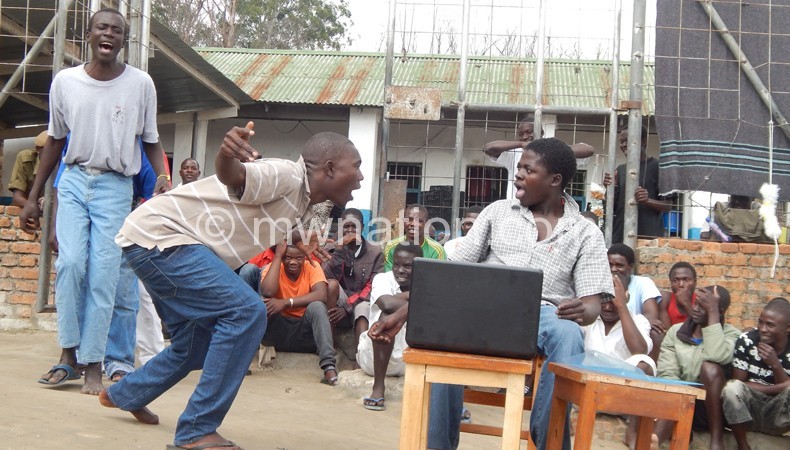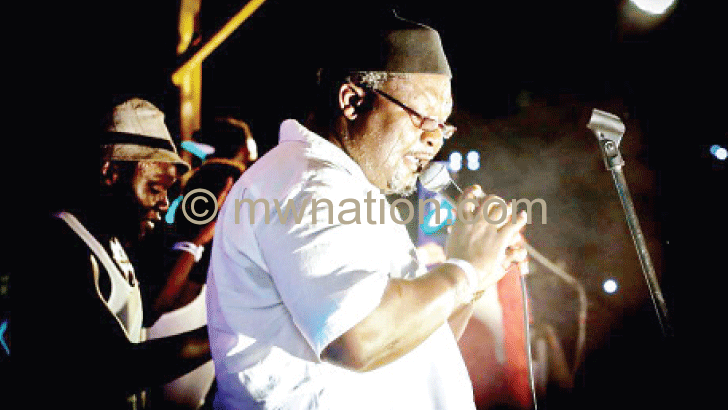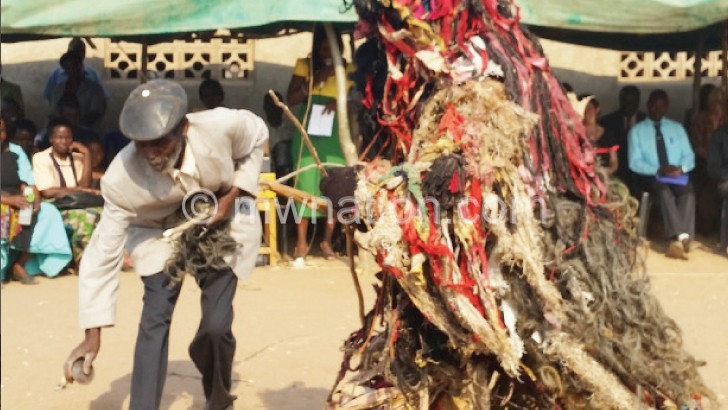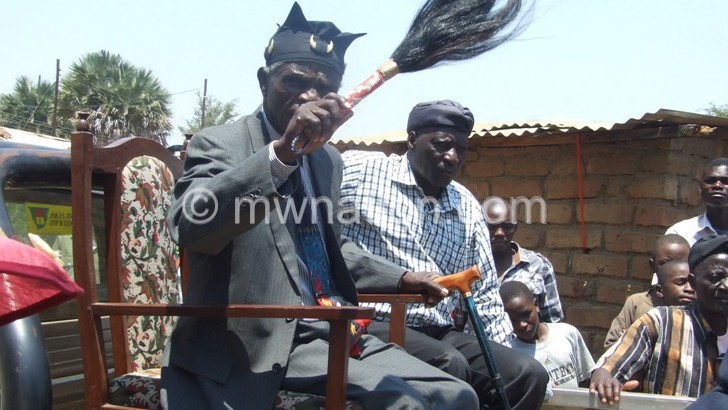Arts for behavioural change in prisons
Inside the Mzuzu Prison walls, on a sunny Wednesday afternoon, there is harmony of beautiful noises. First is a drumbeat. Then musical notes of a guitar. These sounds are harmonised by a soothed voice that turns the noise into a beautiful composition.
In no time, other participants, mostly in their 20s, make it to the floor for a well choreographed dance, following the rhythm created by the musical notes.

It later turns out to be a demonstration of skills the young inmates have been learning for the past three months to enable them to earn certificates in drama, music and dance.
This, however, is no school of arts, but a prison where inmates are perceived as the scars of society, deserving nothing better than to rot in prison for their mischief.
But Music Crossroads Malawi, a local non-governmental organisation, which empowers young people through music, refuses to share this view.
It is implementing a programme called Young in Prison (YIP) with support from the European Union (EU).
The programme works on the principle that the youth, including those in prison, deserve a second chance.
Young in Prison offers young people who are in conflict with the law a holistic reintegration programme that consists of creative workshops in arts, sports, life skills, mentoring and post release support.
This is to encourage them to explore their talents, potential and express their aspirations as important individuals contributing to a productive and creative society.
YIP coordinator Gladson Msendera says the programme uses creative arts for young offenders to learn about effective communication, self development, self esteem and management of social relationships.
“Creative art is important because it helps a person to have a creative mind. A creative mind, in turn, leads to innovation. This empowers a person to venture into anything in life worth the salt,” he says.
The programme is operational at Kachere Reformatory Centre in Lilongwe, Bzyanzi Reformatory Centre in Dowa and Mzuzu Prison.
According to Msendera, more than 2 000 youths have benefitted from the programme since its inception in 2009.
At Mzuzu Prison, 16 young offenders graduated on Wednesday with certificates in drama, music and dance.
Michael Phiri, a 22-year-old inmate, came into prison last year without prior knowledge in music.
He recalls that he was shy to express his ideas in front of people, not to mention of singing.
“When YIP was introduced into prison, I decided to join so that I pass time while I wait for my release. But, today, I have realised that this program goes beyond helping one to pass time. It has helped me in various spheres of my life. I have perfected my voice for singing but I have also gained confidence to stand in front of people,” he explains.
Phiri’s term ends on January 3 next year. He was sentenced for being found in possession of stolen property. While in prison, he has already composed over 20 songs.
“I’m working very hard to be a complete musician. When I’m out of these walls, I plan to join one of the bands in town as a lead vocalist. I have already discussed this with one of our facilitators to link me up to a band,” he says.
Senior facilitator for the programme in the North Tiwonge Hango attests to how the youth have transformed.
“The first day we started, most of them were shy and timid, with low self esteem. But after rigorous trainings, they have developed so much in terms of confidence, skills and the way they feel about themselves as inmates. Now they look at a prison as a place where they can positively change in behaviour and develop their skills,” he says.
Malawi Prison Service regional commanding officer Mahlatin Moyo says the programme is important because it keeps young offenders away from idleness.
“Idleness is the biggest challenge for the youth in prison, mostly those on remand,” says Moyo.
He says it is when the youths are idle that they contemplate on breaking away or become bitter with themselves. This, he says, impacts negatively on their behaviour.
“We don’t really want our boys to be staying idle because this is the most dangerous state of mind. These programmes are important because they help in rehabilitating the young offenders,” he says.
To make sure that the young offenders are rehabilitated fully even after release, YIP has a post-release program which tracks them down when they are out of prison.
“YIP is holistic in nature. It has both pre-release and post-release programmes. We noticed that when an offender is released from prison the society does not usually accept them. So, through our post-release programme, we help them to re-integrate into society easily through constant counselling. But we also support them with tuition fees or capital to venture into businesses,” he says.
For the pre-release programme, the young offenders at Mzuzu Prison think big for themselves. They want to enrol for arts studies in Certificate II which YIP will begin offering end of this month.
According to the young offenders, this will help them gain more skills to enable them form a youth prison band.





